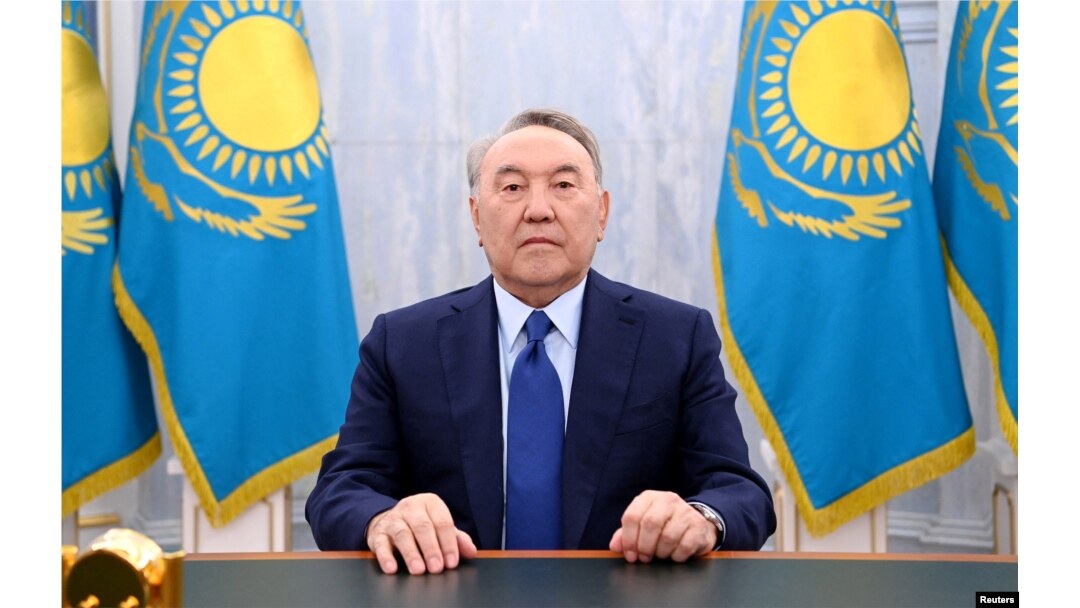Nazarbaev's version
The memoir by the former president in power in the country for 25 years is causing controversy in Astana. The post-Soviet 'father of the new Kazakhstan' intends to prove that the current transition to the 'new Kazakhstan' is also thanks to him. His reconstruction of the January 2022 protests and the encrypted messages to Tokaev.
Astana (AsiaNews) - The memoirs of former president Nursultan Nazarbaev, published in the autobiographical book "My Life", are causing much discussion in Kazakhstan. From dependence to freedom", available to the public from 1 December, after various previews spread by the press.
In particular, what was striking was the statement that many in the country had "expressed hostile feelings" towards Nazarbaev's decision to hand over power to his heir Kasym-Žomart Tokaev, the current president recently re-elected with an almost plebiscite vote.
According to Nazarbaev, “many of those who were against (secretly, of course) my decision to choose a successor actually dreamed of occupying the presidential chair themselves. At the beginning they did not have the courage to express their dissent towards me, and now they cannot do so in the face of the expression of the popular will."
The post-Soviet "father of the new Kazakhstan" therefore intends to demonstrate that the current transition to the post-Nazarbaev "new Kazakhstan" is actually thanks to Nazarbaev himself.
After climbing the Soviet republican hierarchy, Nazarbaev was elected president in 1991, remaining in power for 25 years. He decided to resign his mandate on March 19, 2019, installing Tokaev, then president of the Senate, the following day, who obtained the official position during the early elections in the summer of the same year.
As his predecessor recalls in the book, Tokaev had been "well prepared" for the task, having worked all his life in the field of diplomacy, but also "for three years he had dealt with economic and practical issues", as prime minister of Astana government. His opponents "feared that he was not able to bear the burden of the supreme office, and to assume all the responsibilities for the life of the country".
Nazarbaev then admits the doubts about the political stature of his successor, attributing them to the elusive "hostile characters", a warning for everyone and for Tokaev himself. The feared crisis was then overcome by repressing the protests of January 2022, defined as "the most difficult test in the thirty-year history of independent Kazakhstan", fomented by those who intended to take power. In fact, many had been preparing for this internal struggle for some time, but were surprised by the resignations of 2019, and therefore "woke up late".
The credit that the ex-president attributes to himself concerns not only the transmission of public offices, but above all the concession to Tokaev also of the secretariat of the ruling party Nur Otan, which in 2022 was renamed to Amanat, "confidence" in the acquittal of one's duties, a term of Muslim devotion.
"Many thought they would climb the party ladder to have a better chance of winning the elections, but now they have had to convince themselves that I will also support Tokaev in the next elections in 2024, and that he will therefore remain president until 2029... they have now lost all hope."
The memoir therefore has a current political function, that of countering the hidden face of the "radical opposition", which in January 2022 had organized "Facebook rallies" to manipulate the crowds. The only name that Nazarbaev publicly denounces is that of Mukhtar Ablyazov, a Kazakh banker who has lived in Europe for over ten years and presents himself as an "opposition leader", sentenced in his homeland to a long sentence.
He is currently in Kiev, and the "digital opposition" maneuvers were carried out with the help of "Ukrainian operators" of which Ablyazov himself would have boasted, "making people's suffering and bloodshed the reason for the his political victory." By saving Kazakhstan from these shady figures, Nazarbaev would therefore have contributed to keeping away all the evil spirits that lurk in the West, and especially in Ukraine.







.png)










